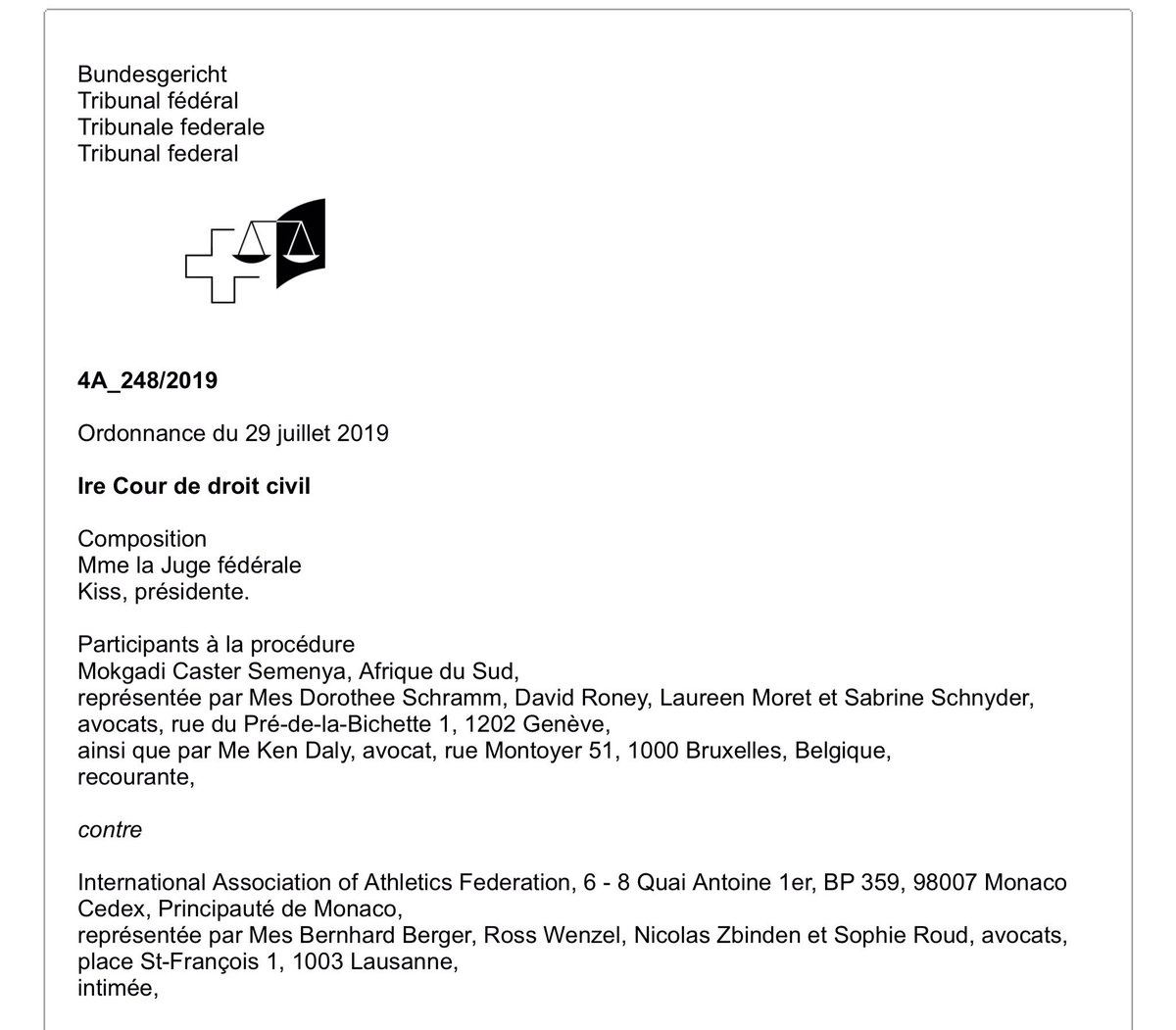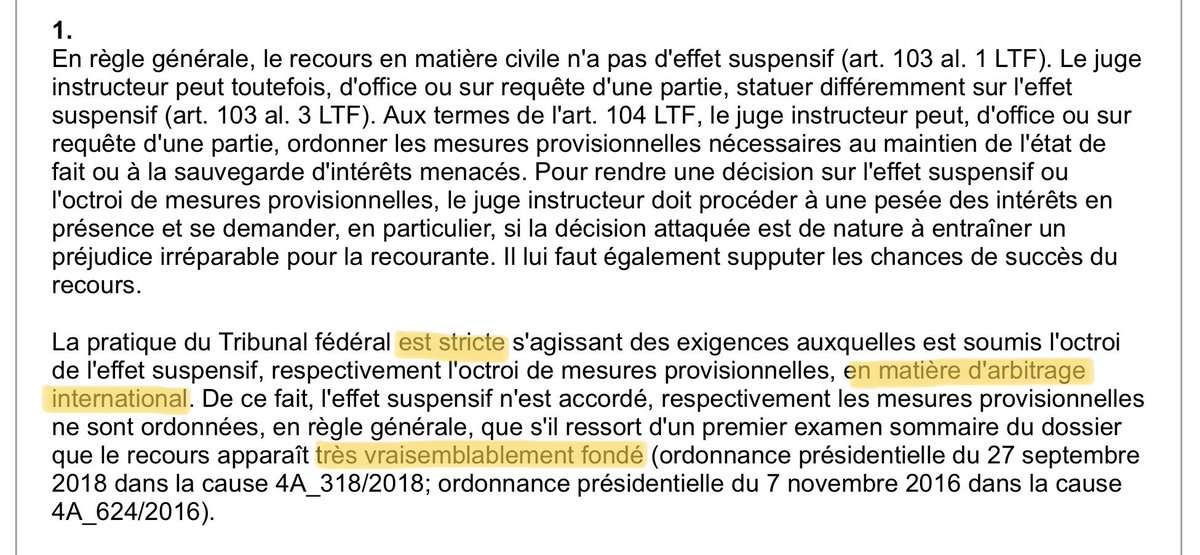
I read AG Rantos' #SuperLeague Opinion (available at curia.europa.eu/juris/document…) for you and here are my main takeaways 🧵🧵🧵
#Sportslaw #EUlaw #BosmanDay #FIFA #UEFA
#Sportslaw #EUlaw #BosmanDay #FIFA #UEFA
It opens with some drama, "the very existence of the organisational structure of the modern game" and "the the future of European football" are at play. (§2)
The first really interesting part of the Opinion concerns the AG's assessment of the relevance of Article 165 TFEU and the European Sports Model in the case (§§27-42).
In a striking move the AG claims that "Article 165 TFEU gives expression, moreover, to the ‘constitutional’ recognition of the ‘European Sports Model'" (§30).
FYI, Article 165 TFEU does not mention the Europe Sports Model...
FYI, Article 165 TFEU does not mention the Europe Sports Model...
This 'European Sports Model' is structured around three pillars: pyramid structure, open competitions and a financial solidarity regime.
The AG invokes Deliege to claim that the Court has endorsed the key role played by federations in the ‘European Sports Model’ and delegated to them the responsibility to "lay down appropriate rules for the organisation of a sporting discipline". (§30)
The AG claims that "the EU legislature decided to incorporate the concept of the ‘European Sports Model’ into the Treaty in order to draw a clear distinction between it and those other models and to guarantee its protection through the adoption of Article 165 TFEU." (§33)
He adds that the "rationale behind the introduction of Article 165 TFEU is therefore to emphasise the special social character of that economic activity, which may justify a difference in treatment in certain respects" (§34)
Furthermore, he considers that "Article 165 TFEU is, by its very nature, a ‘horizontal’ provision, inasmuch as it must be taken into consideration when implementing other EU policies." (§35) In particular when doing a competition analysis (§42).
These considerations set the scene for the AG's competition analysis, which is mainly focused on Article 101(1) TFEU. (§§56-123)
The first question tackled is the one of the existence of a restriction of competition by object. The AG spends quite a lot of time arguing this point and concludes by endorsing the necessity of an assessment of the anticompetitive effects of UEFA & FIFA rules. (§§63-78)
Then he turns to the question whether the UEFA's prior approval system and the connected disciplinary sanctions constitute a restriction of competition (§§ 79-84)). He hints at restrictive effects without really coming to a definitive conclusion (back to the national court).
The core of the Opinion turns on the application of the ancillary restraints doctrine which "allows the specific characteristics of sport to be ‘incorporated’ into the competition analysis". (§91)
In this regard, he focuses first on the objectives pursued by FIFA & UEFA, which "stem from the ‘European Sports Model’ and are therefore expressly covered by primary EU law and, in particular, Article 165 TFEU, with the result that their legitimacy cannot be contested." (§93)
The AG then considers whether the restrictive effects of the UEFA/FIFA regs are inherent to the objectives pursued (§§95-100).
"The prior approval system [...] appears to constitute an essential governance mechanism for European football in order to ensure the uniform application of the rules of that sport and [...] compliance with common standards between the various competitions." (§96)
The AG goes as far as concluding that "Without an ex ante control mechanism, it would be virtually impossible for UEFA or FIFA to ensure that the objectives pursued are achieved." (§97)
He claims that it could prove "necessary to safeguard the current structure of European football & the objective of solidarity" (§98). Yet the Spanish court has "to ascertain whether [UEFA's] profit redistribution mechanism does indeed allow the objectives pursued to be achieved"
Similarly, the AG considers the disciplinary sanctions inherent to attain UEFA/FIFA's objectives because "any rule adopted by a sports federation would be meaningless without disciplinary measures intended to ensure its effectiveness and to secure compliance" (§100).
Turning to the assessment of the application of UEFA's pre-approval and sanction rules to the present case, the Opinion becomes extremely critical of the #Superleague project, with statements like:
"Such a competition does not appear consistent with the principle governing European football, under which participation in competitions is based on ‘sporting merit’ and the results achieved on the pitch." (§102)
"The fact that there are currently significant disparities between the clubs taking part in UEFA’s competitions would not be capable of justifying an increase in those disparities." (§103)
"Such a competition would essentially prevent the participation of teams from most European countries, [...], and this also might well run counter to the ‘European’ dimension of the sports model enshrined in Article 165 TFEU." (§104)
"The ESL model would risk calling into question the principle of solidarity, since [it] could have the effect of undermining the appeal & the profitability of UEFA’s competitions & of thus reducing the revenue from them, a % of which is earmarked for grassroots football." (§105)
"it would appear that ESLC’s founding clubs want, on the one hand, to benefit from the rights and advantages linked to membership of UEFA, without however being bound by UEFA’s rules and obligations." (§107)
Sorry, I ran out of threads...
The AG also distinguishes #Superleague from #IS, as we are not talking about an "event which would not risk influencing the sporting calendar or destabilising the existing structure of the governance and organisational model of the sporting discipline concerned" (§109).
On the proportionality of the restrictions, the AG called for criteria in order to restrict the "federation’s ability to have recourse to arbitrary decisions, refusing the organisation of third-party sporting competitions without justification or on illegitimate grounds" (§113)
Furthermore, "it must be possible on the basis of those criteria to establish clearly, objectively and in as much detail as possible the conditions for access to the market" (§114)
Additionally, "the clubs and players concerned must also be in a position to know in advance the conditions under which they will be able to participate in third-party events and the sanctions incurred should they participate in such events" (§115)
Finally, "the organisers of rival competitions and the clubs and players concerned must have remedies at their disposal that enable them to challenge any refusal decisions or sanctions imposed by the sports federations in question" (§116)
It is for the Spanish Court to decide whether these conditions are fulfilled (doubtful) in UEFA/FIFA's case. Interestingly the AG, wanting to influence this assessment stressed that:
"the principles described in points 114 to 116 of this Opinion can apply only in relation to independent competitions which themselves comply with the objectives recognised as legitimate that are pursued by a sports federation." (§117)
On the sanctions side, the AG considers that "it is important to distinguish between sanctions that may be applied to the clubs and those to which the players of the clubs involved in setting up the ESL appear to be exposed." (§120)
Accordingly, he argues that "imposing sanctions on players who were not parties to the decision to set up the ESL seems disproportionate to me, in particular as regards their participation in national teams" (§121).
But,"sanctions targeted at clubs [...] may appear proportionate given, in particular, the role [they] played in the organisation & the creation of a competition which do not appear to comply with the fundamental principles structuring how European football is organised" (§122)
• • •
Missing some Tweet in this thread? You can try to
force a refresh








